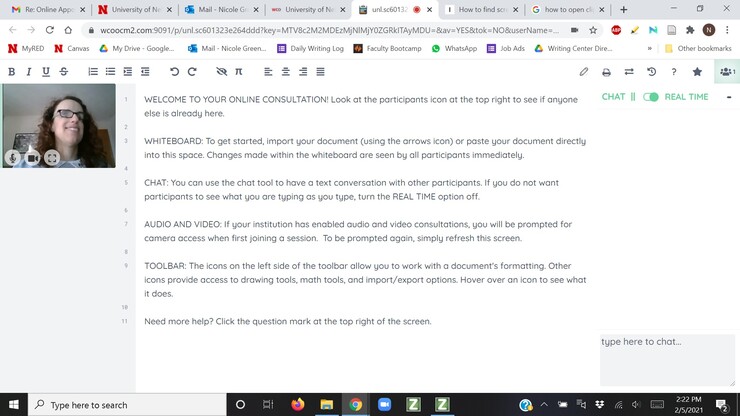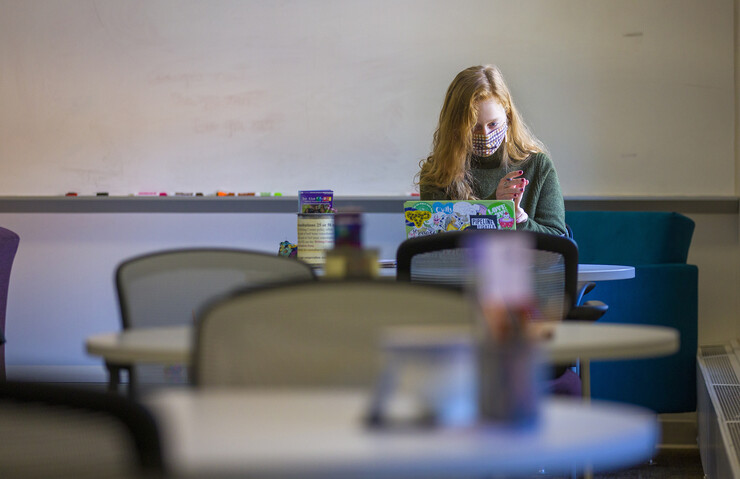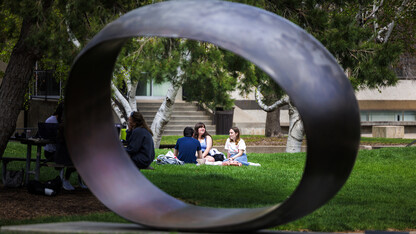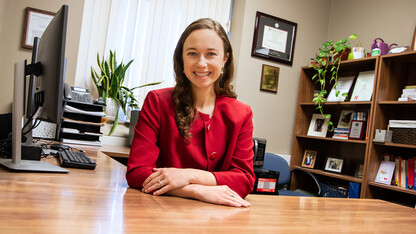· 4 min read
After pandemic pivot, Writing Center’s footprint grows
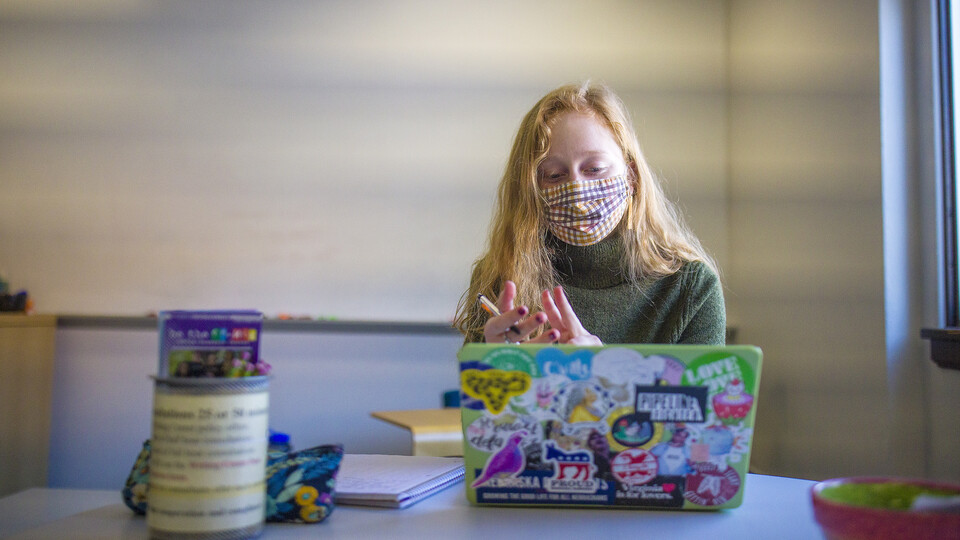
The University of Nebraska–Lincoln’s Writing Center is still a bustling place, now in a virtual space.
Following a successful transition to online writing consultations in March 2020, due to the COVID-19 pandemic, the center has continued to expand its reach.
With its physical space in Andrews Hall shut down to visitors, the Writing Center offers online consultations exclusively, and appointments can be made through its website. Utilizing a platform called WC Online, consultants and their clients are able to video conference while also having access to the piece of writing their working on together.
“Luckily, we had a structure in place for the transition because the program we use for scheduling that is specific to writing centers had the capability to move the work online,” Charlotte Kupsh, assistant director, said. “What took a little bit more time was working together with our consultants to develop new protocols and translate our best practices into an online setting.”
“One thing we emphasize is that we’re not there to be an editor, but as a peer working with the writer to figure out what they want to say and leaving authority with the writer. A lot of our work is just having one-to-one conversations with writers and making them feel comfortable. Initially, when we switched over, what we really focused on with our consultants was translating that welcoming atmosphere to an online setting, where you project comfort and peer-to-peer collaboration while also negotiating technical issues.”
The end of the spring 2020 semester was bit slower than usual, most likely due to students, faculty and staff finding their footing in a new normal, said Nicole Green, assistant director.
“We did have to get the word out that the Writing Center was still there,” Green said. “I think they were so used to being able to drop by the space and ask a question or make an appointment.”
That quickly changed. Since the fall semester began, utilization of the Writing Center’s service has grown. Consultants completed 831 appointments, with 523 students in 98 different majors.
“We actually had really high usage this fall,” Green said. “I think a lot of that came from everybody settling in some to this new routine. We’ve been actively recruiting new consultants, because during the Fall 2020 semester, during those last few weeks, we had a large waiting list.”
Anecdotally, the virtual appointments have opened the door to helping more students that maybe wouldn’t have had the time to come to campus.
“Some consultants have told us they’ve done appointments with students while they’ve been on break at their jobs,” Green said.
Additionally, the Writing Fellows program has been well-utilized by faculty in both in-person and remote classes. Writing Fellows are primarily undergraduate Writing Center consultants who support the teaching of writing in particular classes across the disciplines. Fellows work closely with and are mentored by the faculty members teaching the course, and work with their the students in the course on their written work.
“That is a program, absolutely where we have heard from students in those classes that they really valued the opportunity to meet, especially last spring when everything went to remote,” Green said. “They really valued the opportunity to meet with their writing consultant over zoom, to have those conversations.”
Kupsh said more and more faculty have inquired about working the Writing Center into their syllabus, too.
“We worked with several instructors last semester to work out ways to integrate the Writing Center into their courses, whether it’s through the Writing Fellows program that Nicole described or just having a required or an extra credit opportunity by visiting the Writing Center,” she said. “We worked with them on ways to do that that would make it meaningful for everybody involved.”
Green and Kupsh are hopeful about returning to the physical space, most likely in the Fall 2021 semester, but they are also working out ways to keep virtual appointments part of their regular offerings.
“Obviously the pandemic has been awful — 0 out of 10, would not do again — but it has pushed us to learn things we didn’t know before and opened up this new access for people who have maybe struggled to find ways to connect with us, especially students studying at a distance,” Green said.
